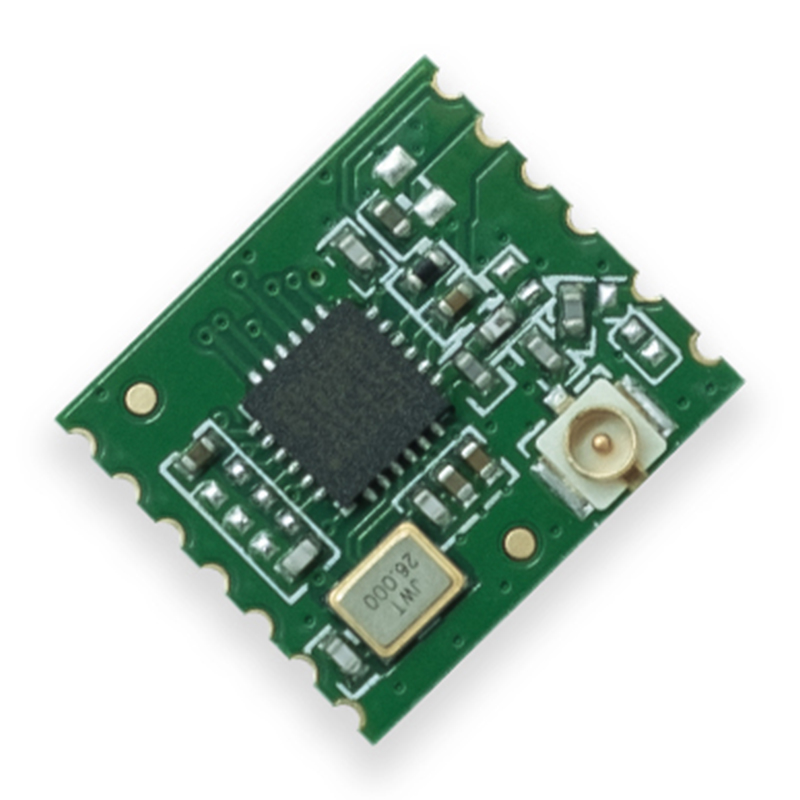Unleashing the Power of Wireless Revolution

As technology continues to advance at an unprecedented pace, the world of wireless communication has experienced a revolution of its own. The latest breakthrough in this field is the advent of WiFi module technology, which has unleashed a whole new level of connectivity and convenience for users worldwide. In this article, we will delve into the intricacies of this revolutionary technology, its applications, and the immense benefits it brings to various industries.
1. Unraveling the WiFi Module Technology
WiFi module technology, also known as wireless LAN or WLAN, enables devices to connect to a network without the need for physical cables. It utilizes electromagnetic waves to transmit information between devices, allowing seamless and high-speed communication. The latest WiFi module technology utilizes advanced protocols and hardware enhancements to deliver faster speeds, greater range, and improved reliability.
2. Applications of WiFi Module Technology
The applications of the latest WiFi module technology are vast and varied. From personal use in homes and offices to industrial applications, the possibilities are endless. Some of the key areas where WiFi module technology has made a significant impact are:
- Smart Homes: WiFi-enabled devices allow for seamless integration and control of various smart home appliances, security systems, and entertainment systems.
- Healthcare: WiFi module technology is revolutionizing patient care, enabling wireless monitoring devices, remote consultations, and efficient data transfer in medical facilities.
- Education: WiFi connectivity in schools and universities has transformed the way students learn, facilitating online research, digital learning platforms, and collaborative projects.
- Retail: The latest WiFi module technology enables retailers to provide personalized shopping experiences, location-based marketing, and efficient inventory management.
- Industrial Automation: WiFi connectivity enhances the efficiency and productivity of industrial processes, allowing seamless communication between machines, sensors, and human operators.
3. Advantages of the Latest WiFi Module Technology
The latest advancements in WiFi module technology offer numerous advantages over traditional wired connections:
- Convenience: Wireless connectivity eliminates the need for physical cables, providing easy access and flexibility for users.
- Increased Mobility: WiFi module technology enables seamless connectivity between devices, allowing users to move freely within the network range.
- Scalability: Wireless networks can be easily expanded and adapted to accommodate additional devices without the need for extensive wiring.
- Cost-Effectiveness: WiFi module installation and maintenance costs are significantly lower compared to wired networks, making it an economical choice for both residential and commercial settings.
- Enhanced Speed and Performance: The latest WiFi module technology offers faster data transfer speeds, ensuring smooth and lag-free communication.
4. Future Outlook and Emerging Trends
The future of WiFi module technology looks promising, with several exciting trends on the horizon:
- 5G Integration: The integration of WiFi module technology with 5G networks will result in even faster speeds and lower latency, revolutionizing wireless communication further.
- Internet of Things (IoT): WiFi module technology will play a crucial role in the proliferation of IoT devices, connecting various smart devices and enabling seamless data sharing.
- Mesh Networks: Mesh networks, utilizing WiFi module technology, will overcome the limitations of traditional centralized networks, providing more reliable and flexible connectivity.
- Security Enhancements: Further advancements in encryption algorithms and security protocols will ensure the safe and secure transmission of data over WiFi networks.
Conclusion
The latest WiFi module technology represents a significant leap in the world of wireless communication, powering a revolution in connectivity. Its applications range from personal use to industrial automation, bringing convenience, mobility, and cost-effectiveness to various sectors. With continuous advancements on the horizon, WiFi module technology is set to reshape the way we connect and communicate in the future.

 Trolink Joint With Tuya to Make Iot Benefit Every Family
Trolink Joint With Tuya to Make Iot Benefit Every Family
 5 Key Indicators for WiFi Module Selection You Have to Know !
5 Key Indicators for WiFi Module Selection You Have to Know !
 IOT module is the brain of smart products
IOT module is the brain of smart products
 What is the signal coverage range of the WiFi module chip?
What is the signal coverage range of the WiFi module chip?